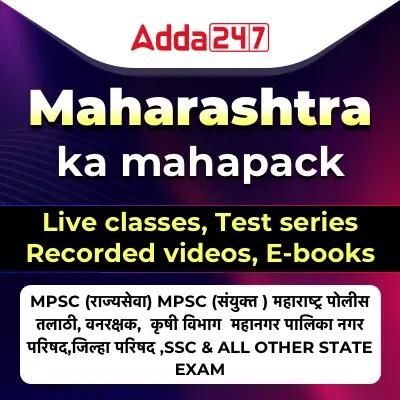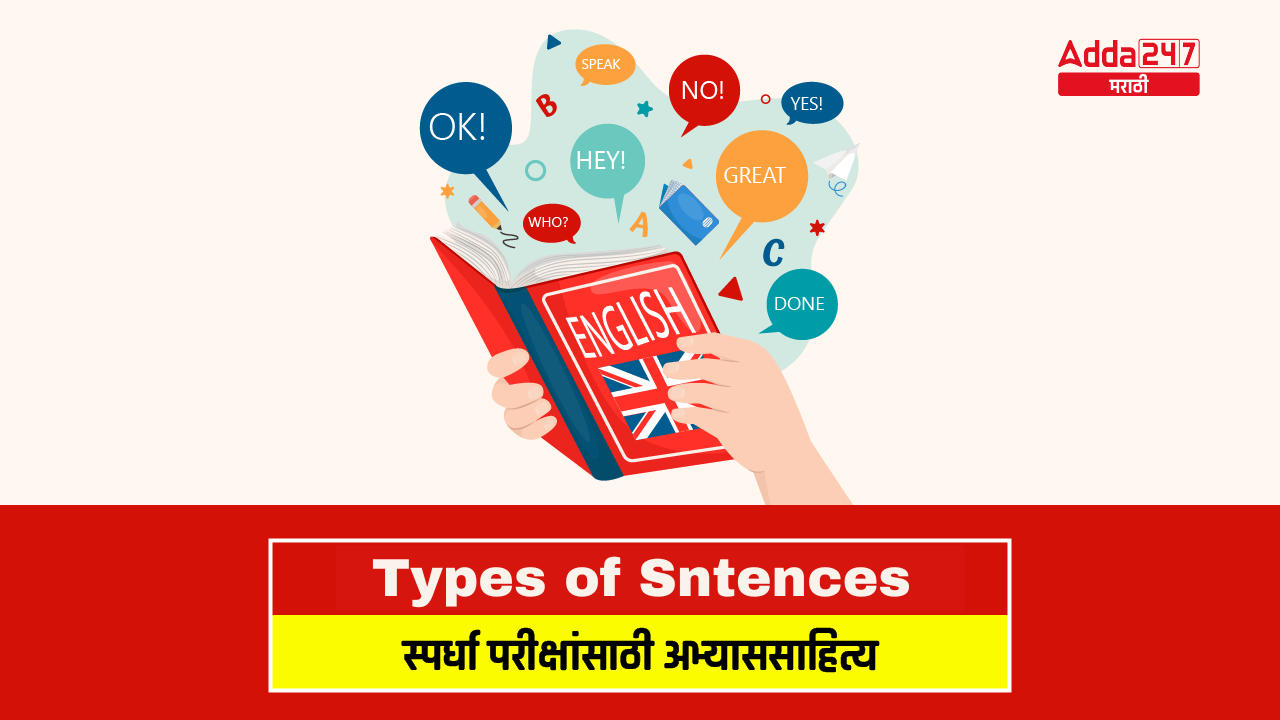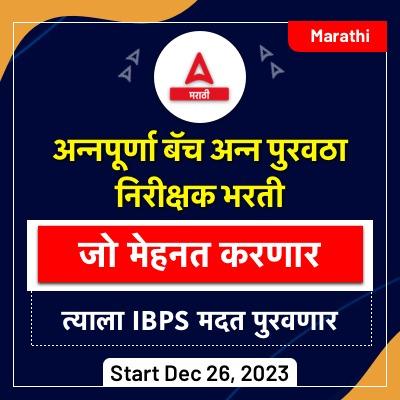Table of Contents
Types of Sentences
Types of Sentences: महाराष्ट्रातील तसेच राज्यातील बहुतेक स्पर्धा परीक्षेचा महत्वाचा विषय म्हणजे इंग्लिश. इंग्लिश विषयात जास्तकरून इंग्लिश ग्रामर वर प्रश्न विचारले जातात. नेहमीच्या सरावाने इंग्लिश विषयात चांगले गुण मिळू शकतात. आगामी काळातील सरळसेवा भरती जसे की, WRD जलसंपदा विभाग भरती आणि इतर स्पर्धा परीक्षांमध्ये इंग्लिश ग्रामरला विशेष महत्त्व आहे. इंग्लिश ग्रामर चे रोज वाचन फायदेशीर ठरते. इंग्लिश ग्रामर मधील एक महत्वपूर्ण घटक म्हणजे Types of Sentences. यावर परीक्षेत हमखास 1 ते 2 प्रश्न विचारले जाऊ शकतात. या लेखात आपण Types of Sentences व त्यातील महत्वाचे नियम यावर माहिती पाहणार आहोत.
Types of Sentences: विहंगावलोकन
इंग्रजी व्याकरणाचा अभ्यास करतांना Types of Sentences या घटकाचा अभ्यास करणे महत्वाचे ठरते. या लेखात Types of Sentences बद्दल सविस्तर माहिती दिली आहे.
| Types of Sentences: विहंगावलोकन | |
| श्रेणी | अभ्यास साहित्य |
| उपयोगिता | WRD जलसंपदा विभाग आणि इतर सर्व स्पर्धा परीक्षांसाठी उपयुक्त |
| विषय | इंग्रजी व्याकरण |
| लेखाचे नाव | Types of Sentences |
| लेखातील प्रमुख मुद्दे |
|
Types of Sentences
[i] Assertive Sentence or Statement
- If the reporting verb is in the present or future tense, the tense in the reported speech is not changed.
- Direct: Nabil says, “I am fine.”
- Indirect: Nabil says that he is fine.
- Direct: The man says, “I shall do it.”
- Indirect: The man says that he will do it.
- Direct: He says, “I went there yesterday.”
- Indirect: He says that he went there yesterday.
- Direct: He will say, “I am ready to go.”
- Indirect: He says that he is ready to go.
- If the reporting verb is in the past tense, the verb in the reported speech is changed into the corresponding past form.
- Nadin said, “I am fine.’
- Nadin said that he was fine.
- He said, “I want to go.”
- He said that he wanted to go.
- He said, “I am reading a book.”
- He said that he was reading a book.
- He said, “I have learnt my lesson.”
- He said that he had learnt his lesson.
- He said, “I have been learning English.”
- He said that he had been teaming English.
- He said, “I had reached the school before the bell rang”
- He said that he had reached the school before the bell rang.
- He said, “I can do the work.
- He said that he could do the work.
- He said, “I shall do it.”
- He said that he would do it.
- He said, “I shall have done it.”
- He said that he would have done it.
- If the reporting verb is in the past tense, and the verb of the reported speech is in the past indefinite tense, it (the verb in the reported speech) is changed into the past perfect tense.
- Direct: Urmi said, “I went to school.
- Indirect: Urmi said that she had gone to school.
- Direct: He said, “I wrote the book.”
- Indirect: He said that he had written the book.
- Direct: Kabir said to me, “I was sick.”
- Indirect: Kabir told me (said to me) that he had been sick.
- If the reporting verb is in the past tense, and the verb in the reported speech is in the past continuous, it (the verb in the reported speech) is changed into the past perfect continuous tense.
- Direct: He said, “I was reading a book.”
- Indirect: He said that he had been reading a book.
- Direct: Shimu said to me, “I was making research to solve the problem.”
- Indirect: Shimu told me that she had been making research to solve the problem.
(Note: The use of the conjunction between the reporting speech and the reported speech is not a must in the indirect speech.)
- If the Direct Speech describes a universal truth, constant fact, habitual fact, geographical fact and quotations, the verb in the reported speech remains unchanged:
- Direct: The teacher said, “The earth moves round the sun.”
- Indirect: The teacher said that the earth moves round the sun.
- Direct: He said, “My father reads the Holy Quran every morning.”
- Indirect: He said that his father reads the Holy Quran every morning.
- Direct: Keats said, “A thing of beauty is a joy forever.”
- Indirect: Keats I said that a thing of beauty is a joy forever.
- The First Person of the direct speech is changed into the person the man spoken to and the third person does not have any change:
- Direct: Rahman said to Mamun, “Your father will go to my office”
- Indirect: Rahman told Mamun that his father would go to his office.
- Direct: Salim says to you, “You did not help me.”
- Indirect: Salim tells you that you did not help him.
- Direct: They said to us, “He will meet you.”
- Indirect: They told us that he would meet us.
(Note: If the Reporting Verb has an object, it is not good English to write, “Said to him”, It is better to write told us/him etc.)
- If the Reported speech has two or more verbs occurring at the same time, the past tense of the verbs is not changed:
- Direct: The teacher said, “Mr. Ant worked hard while Mr. Grasshopper slept.”
- Indirect: The teacher said that Mr. Ant worked hard while Mr. Grasshopper slept.
- Indirect: He said, “The children sang, danced and played.”
- Direct: He said that the children sang, danced and played.
- Words that express nearness are often changed into the words expressing remoteness:
- Here- there
- This -that
- Ago -before
- These -those
- Hence -thence
- Come -go
- Hither -thither
- Thus -so, in that way
- Today- that day, the same day
- Tomorrow- The next day, the following day
- Yesterday -the previous day, the day before
- Last night -the previous night, the night before
[ii] Interrogative Sentence:
Structure of indirect speech
(a) Reporting verb is changed into ask or enquire of.
(b) If or whether is used as a linking word.
(c) The auxiliary verb in the reported speech is used after the subject.
(d) If the sentence begins with whom, who, which, what, how, when, where, why etc., these are not changed and if or whether is not used.
(Note: The indirect speech becomes a statement and no question mark is used.
- Nadim said to Nadia, “Are you reading now?”
- Nadim asked Nadia (or enquired of) if she was reading then.
- The man said to Shaila, “What is your name?”
- The man asked Shaila what her name was.
[iii] Imperative Sentence
Structure of indirect speech
- Reporting verb is changed into tell, command or order, request – or beg or entreat or ask, forbid, according to the sense of the speech
- Reporting verb and Reported speech are joined by Infinitive. – He said to me, “Do it now”? He told me to do it then.
The captain said, “Soldiers, march on”. The captain commanded the soldiers to march on.
[iv] Optative Sentence
The structure of indirect speech of Optative sentences:
- The Reporting verb is changed into a wish or pray.
- The Optative form is changed into a statement ‘That’ is used as a linking word.
- He said to me, “May you be happy”.
- He wished that I might be happy.
- Mr. Khan said, “May Allah save me”.
- Mr. Khan prayed that Allah might save him.
[v] Exclamatory Sentence:
- The reporting verb is changed into exclaim, cry, shout etc. according to the sense.
- New words and phrases like. with joy/in joy, with sorrow/ in sorrow, in wonder etc. are used to express the meaning of exclamation. If the sense of exclamation is not clear, such phrases are not used.
- Direct: The man said, “Alas! I am undone”.
- Indirect: The man cried out in sorrow that he was undone.
- Direct: He said, “What a fool I am“!
- Indirect: He cried out with sorrow that he was a great fool.
- [Note: ‘great’ is used before a noun]
- Direct: He said, “What a long journey”!
- Indirect: He exclaimed that it was a very long journey.
Exception –
- Direct: He said, “Who knew that it would happen”!
- Indirect: He said that nobody knew -that it would happen.
- Direct: He said, “By God! I have never done it”.
- Indirect: He swore by God that he had never done it.
- Direct: He said, “Had I the wings of a bird!”
- Indirect: He wished he had the wings of a bird.
महाराष्ट्रातील सर्व स्पर्धा परीक्षांसाठी ऑनलाईन क्लास, व्हिडिओ कोर्स, टेस्ट सिरीज, पुस्तके आणि इतर अभ्यास साहित्य खाली दिलेल्या लिंक वर क्लिक करून मिळावा.
WRD परीक्षेसाठी उपयुक्त अभ्यास साहित्य
महाराष्ट्रातील आगामी WRD जलसंपदा विभाग भरती 2023 व इतर सर्व सरळ सेवा भरती साठी सर्व महत्वपूर्ण विषयांवर अड्डा247 ने एक लेखमालिका सुरु केली आहे. दररोज यात नवनवीन घटकांची भर पडत आहे. WRD परीक्षेसाठी इतर महत्वाचे लेख पाहण्यासाठी खाली दिलेल्या लिंक वर क्लिक करा.
| लेखाचे नाव | लिंक |
| Direct – Indirect Speech | |
| भारताचे नागरिकत्व | |
| शब्दसिद्धी व शब्दसिद्धीचे प्रकार | |
| सहसंबंध | पाहण्यासाठी येथे क्लिक करा |
| वाक्य व वाक्याचे प्रकार | पाहण्यासाठी येथे क्लिक करा |
| गांधी युग (1919 ते 1948) | |
| मराठीतील विरामचिन्हे | पाहण्यासाठी येथे क्लिक करा |
| अक्षरमालिका | पाहण्यासाठी येथे क्लिक करा |
अड्डा 247 मराठी अँप | अड्डा 247 मराठी टेलिग्राम ग्रुप








